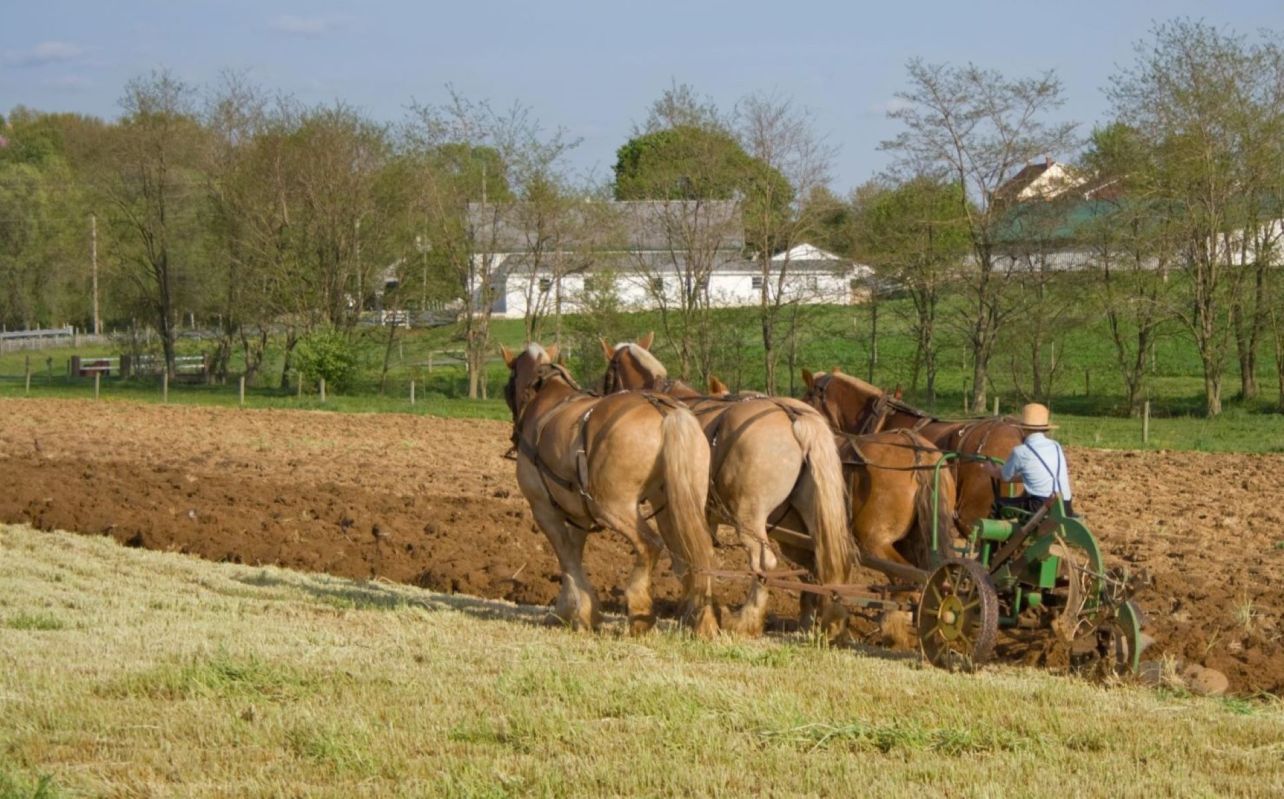A Reddit post on r/Environment sparked conversations among users about a misconception about Amish communities.
The post linked an article from Religion News that explored this relationship, citing certain harmful farming practices and dirty energy usage that seem to fly in the face of the perception of the environmental stewardship of these communities.
David McConnell and Marilyn Loveless, two professors at The College of Wooster, spent seven years observing the Amish. Their research argues that one core value can explain the sometimes unsustainable practices of many Amish communities.
"They believe that God gave the Earth to people for them to use," McConnell told Religion News, noting they do not embrace "creation care" theology.
Contrary to the popular belief that the Amish reject modern technology, each community makes its own decisions about what type of technology it makes use of to sustain its off-grid lifestyle.
Many Amish communities have actually embraced clean energy technology that allows their community to remain independent of the outside world. Today, one might see solar panels and individuals using e-bikes in Amish communities.
Still, diesel and gasoline generators often serve as prime energy sources for Amish appliances and farm equipment. Burning either fuel significantly contributes to air pollution that worsens air quality and drives the overheating of our planet.
Religion News reports that the few remaining Amish households headed by farmers often use harmful pesticides and chemical fertilizers that wreak havoc on local ecosystems and pollute waterways. The Amish have been under fire in several states for farming practices that degrade vital watersheds.
Some users chimed in with their opinions on the matter, while others shared their firsthand experiences.
"A lot of people from the cities where I'm from look at the Amish and think, 'What an idyllic sustainable lifestyle, so different from our modern one," the original poster wrote. "Except it really isn't [idyllic] at all, it's a largely separate insular economy from ours, but uses and benefits from a lot of the short term extractivist and careless land practices that has got modern America into the mess its in today."
"A lot of this depends on the sect/order of Amish. I live in the heart of white top buggy Amish country. None of them are using chemical pesticides or modern farm equipment in anything they do," one user added.
What many people believe to be a straightforward relationship between Amish homesteaders and the environment is far more complicated than hand-crafted wood furniture, canned food, and clotheslines.
As McConnell and Loveless explained, Amish communities are not a monolith.
Join our free newsletter for cool news and cool tips that make it easy to help yourself while helping the planet.









